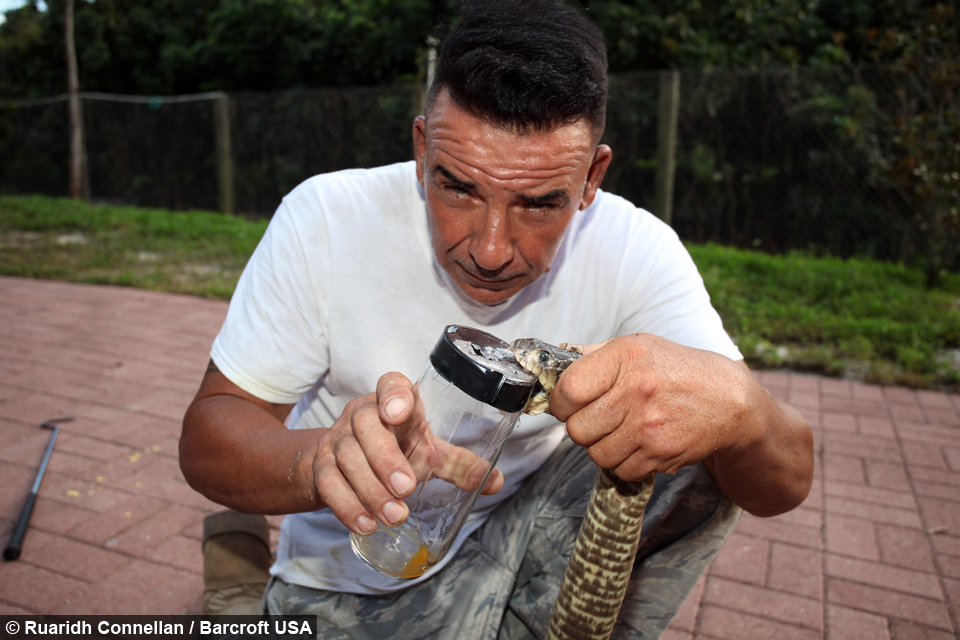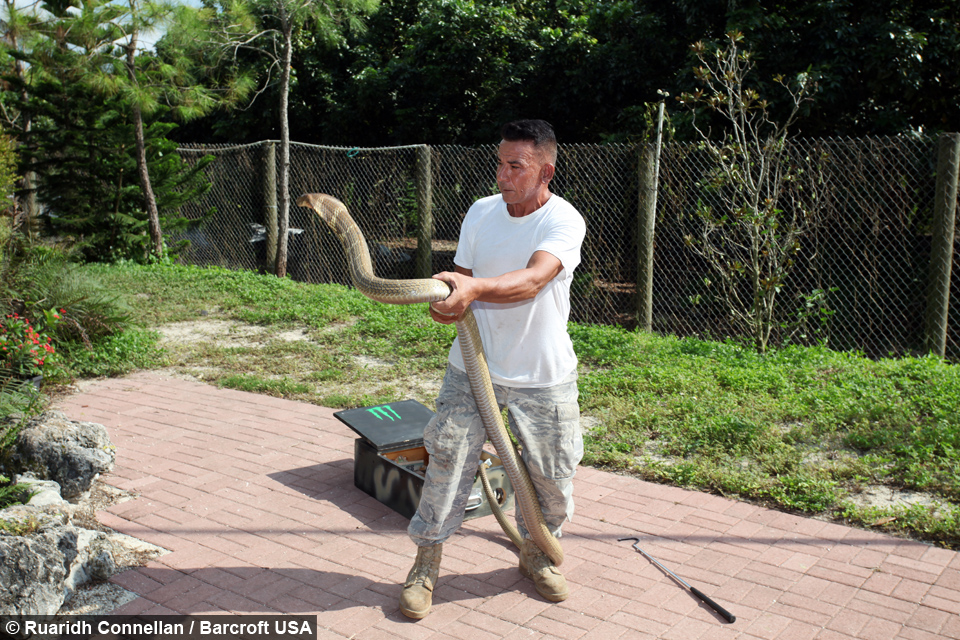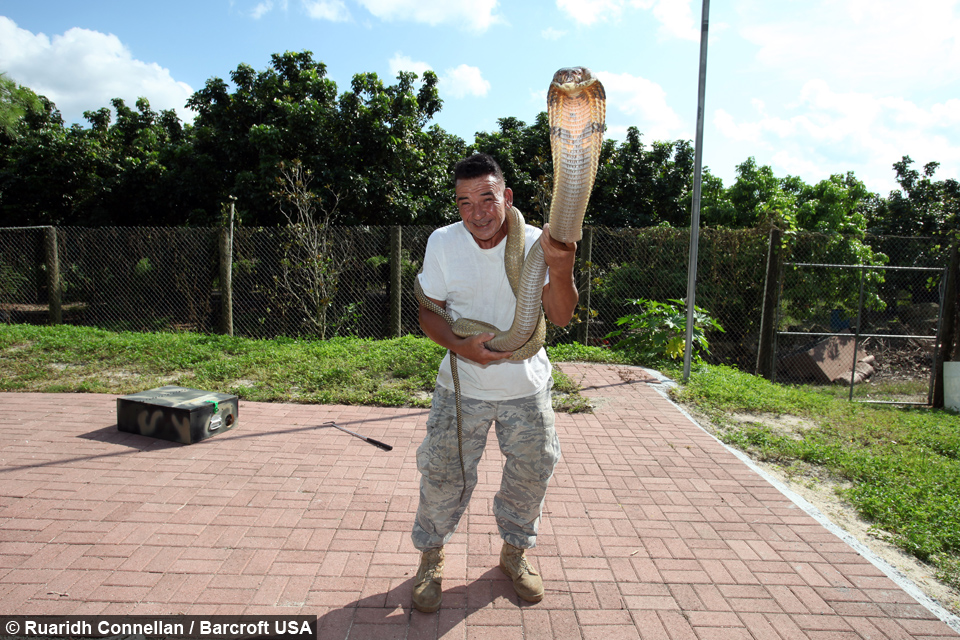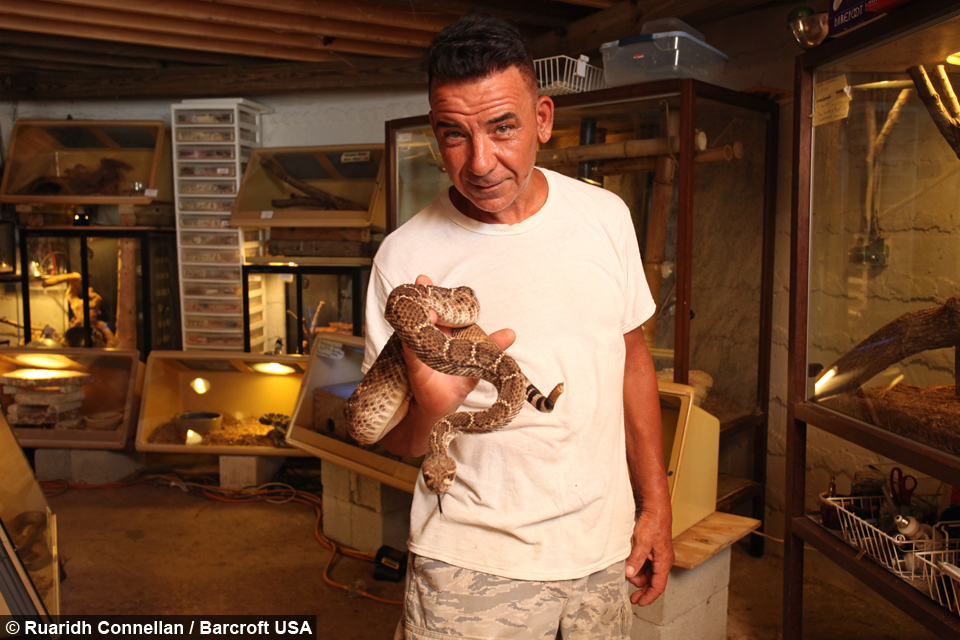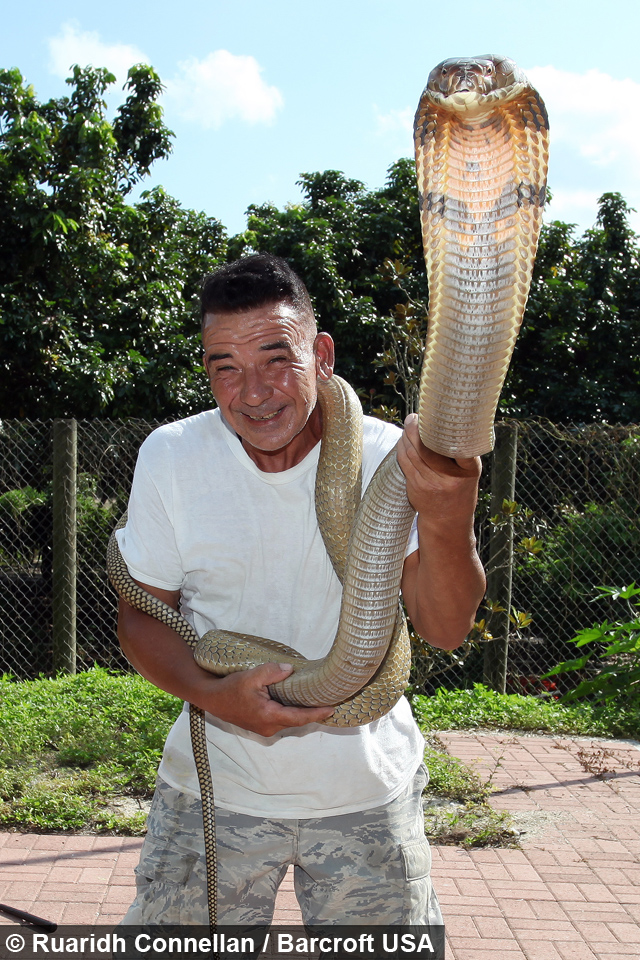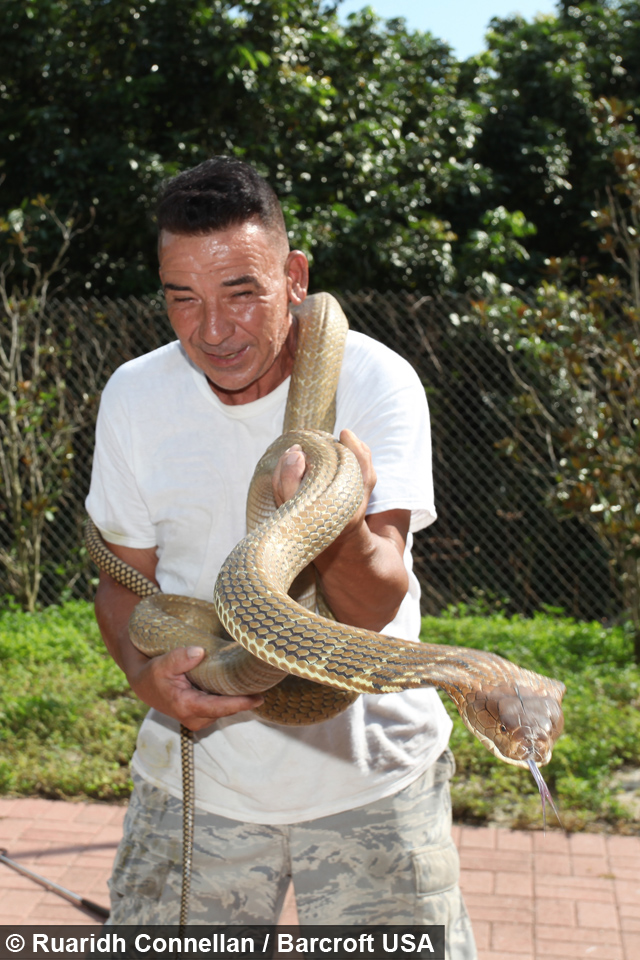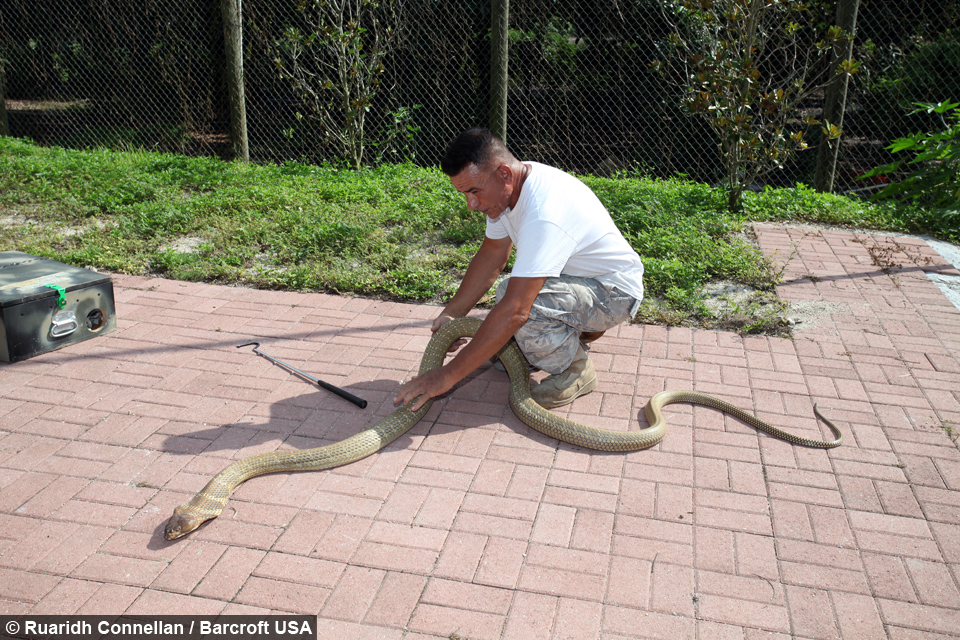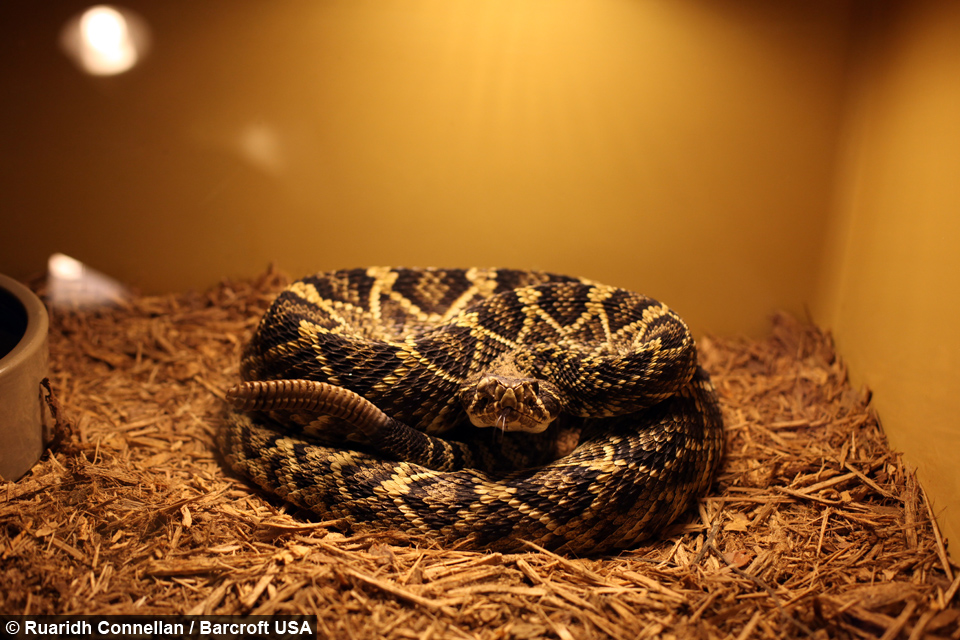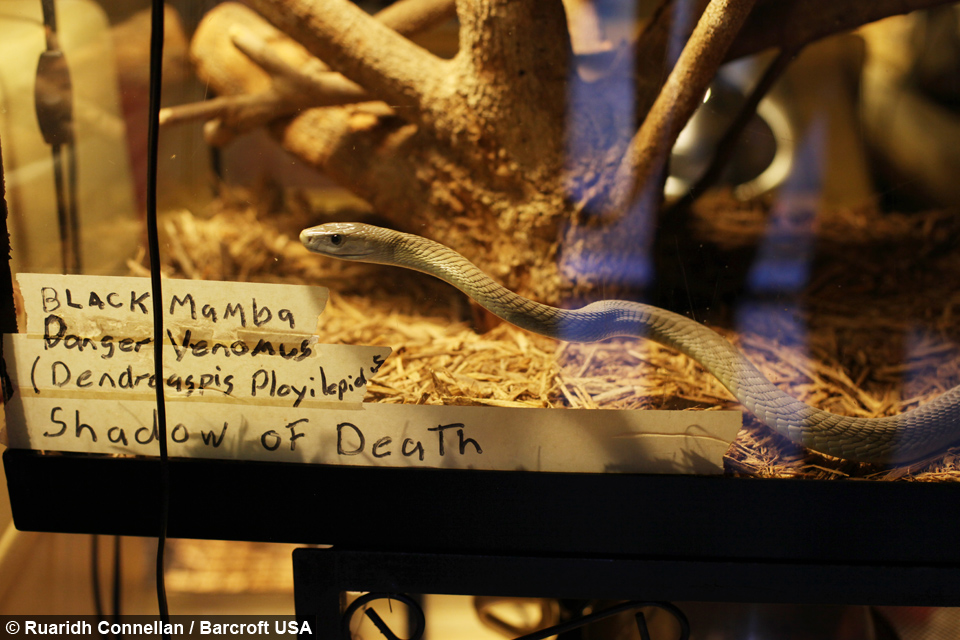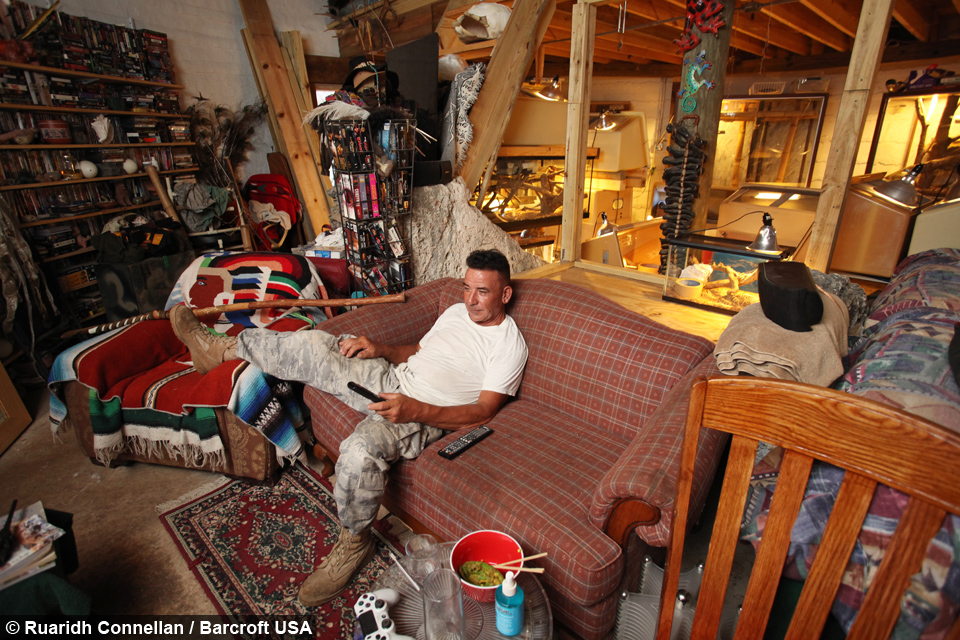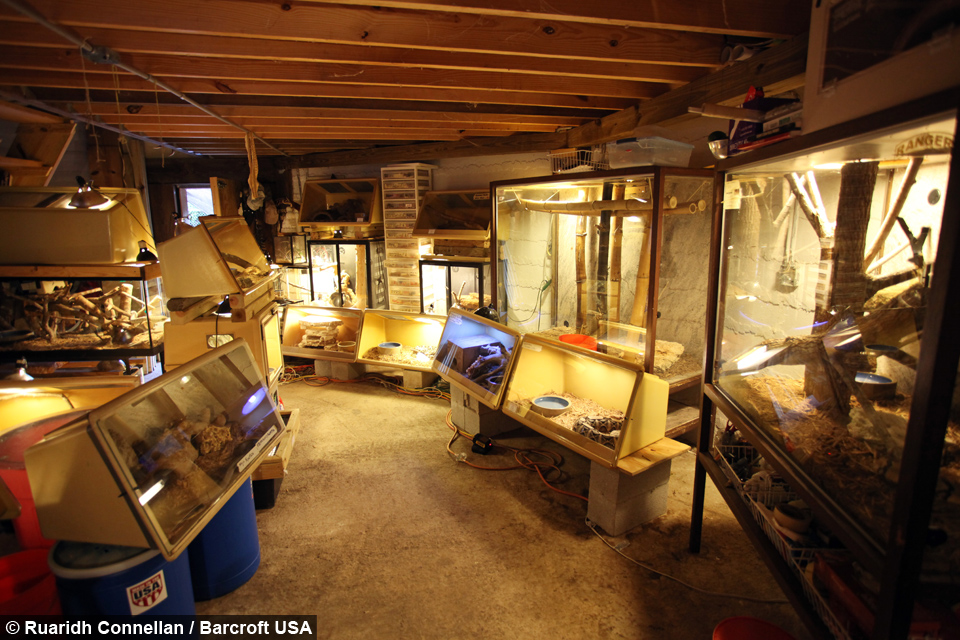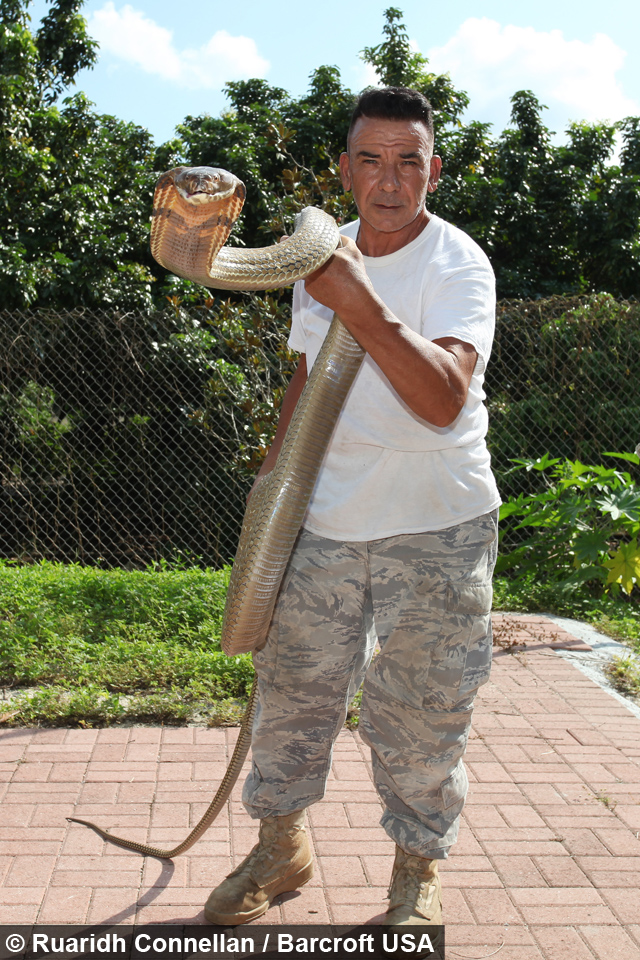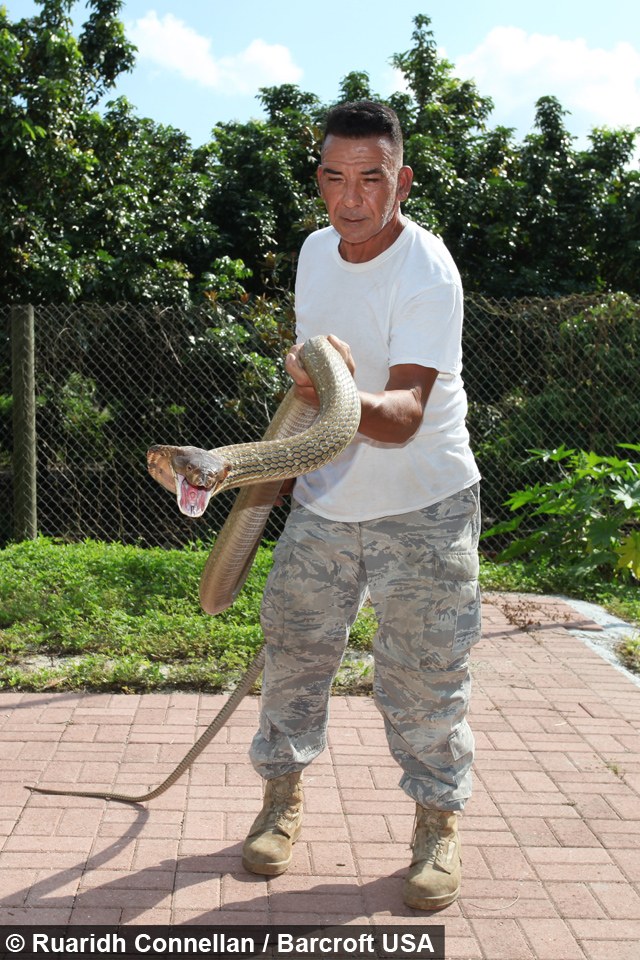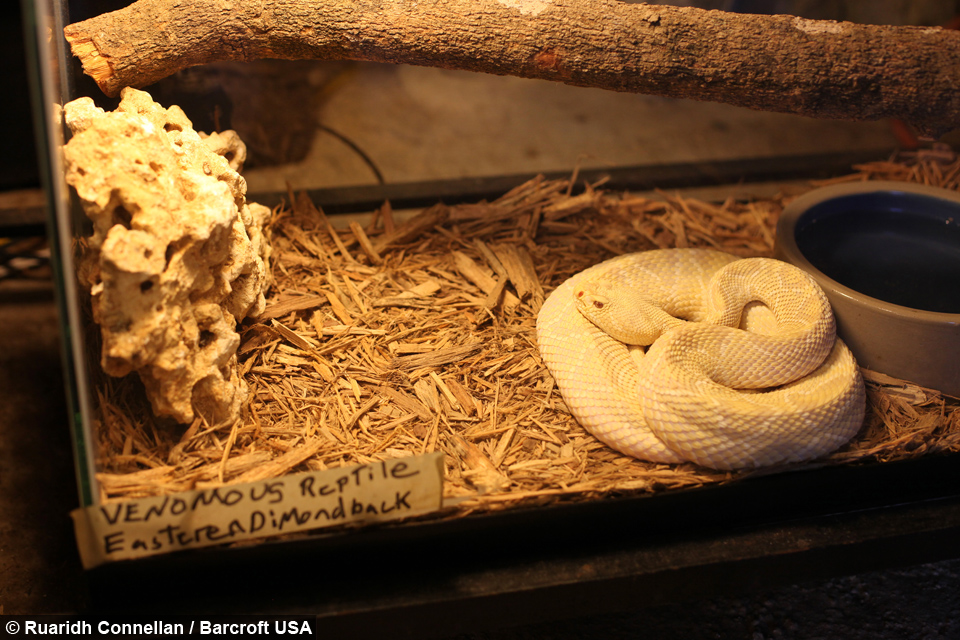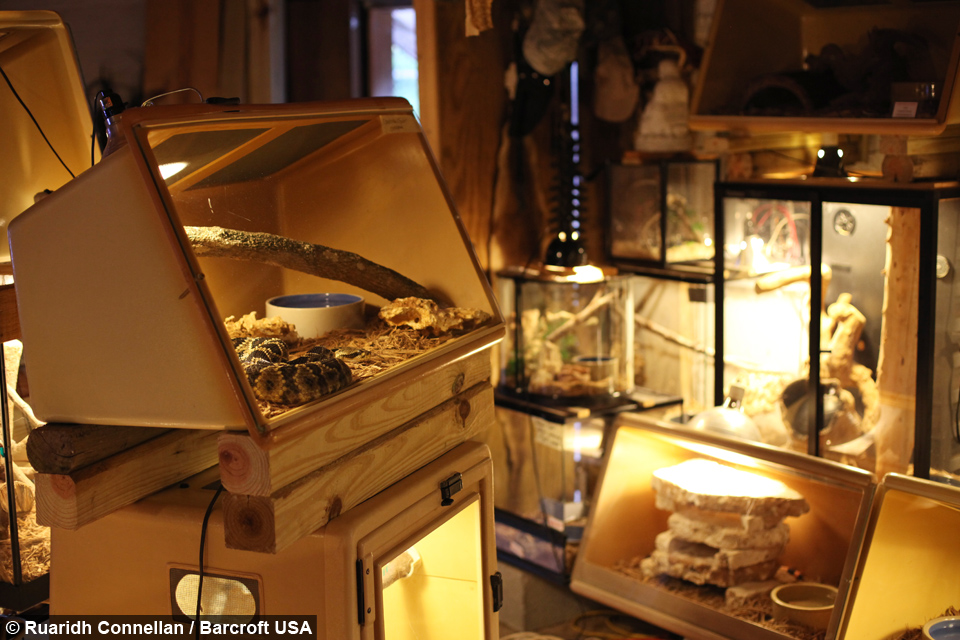Living Dangerously: Man Shares Home With 60 Deadly Snakes
By Samantha Grillo @_samanthagrillo
Scroll down for the full story
Videographer / Director: Ruaridh Connellan
Producer: Samantha Grillo, Nick Johnson
Editor: Kyle Waters
Albert Killian began removing snakes from his neighbour's yard when he was just ten and has loved the animals ever since.
Amazingly the 60-year-old has been bitten more than 100 times but has built up a tolerance to their venom.
He keeps and handles 28 Egyptian Cobras, three Indian Cobras, Forest Cobras, Spitting cobras, Rattlesnakes and Vipers.
He extracts venom from his snakes which is then processed into pharmaceutical products.
Albert, from Florida, USA said: “These animals can kill you in the blink of an eye - it’s one of the most dangerous jobs in the world.
“Over the years I have built a tolerance for the venom by taking so many bites.
“I’ve taken mamba bites and I’ve been bitten in the arm by a cobra. There was enough venom to probably drop an 8,000 pound elephant.
“The fact that I’ve taken five Mamba bites and I never needed anti-venom boggles my mind.”
His passion for the reptiles dates back to childhood when he made it his mission to save all the snakes in his community.
Albert said: “One day I was going to school and saw a snake on the side of the road.
“When I ran home and told my uncle he went up the road and shot it which was really upsetting.
“I went into shock - I felt like these animals had a bad deal and I felt that I had to save all the snakes in the neighborhood.
“I got a couple of containers, garbage cans, and barrels and started collecting snakes and keeping them in the garage.”
Neighbours then started to pay Albert to remove snakes from their yards.
Albert said: “After that I started doing shows for schools, the boy scouts, and other organizations.
“I then started to get into film and started using my animals for television.
“One of my longest running jobs was working with the WWE and wrestler Jake “The Snake” Roberts.”
But one encounter with a Southeast Asian Suphan Cobra almost cost him his life.
Albert said: “The thing nailed me and I had 20 minutes to get to the hospital and no ambulance could take me.
“I drove to the hospital and flat lined there for like two or three minutes - the venom put me in respiratory failure.”
Despite his near-death experience, Albert continues to be close to his reptiles.
Albert said: “It is a very dangerous field to get into but it requires a lot of knowledge.
"I consider myself one of the best handlers in the world - I have an understanding with these animals a lot of people don’t have.
“I continue to handle snakes because they are a big part of my life and I actually love them - I appreciate these animals more than anything.”
The snakes he lives with come from private owners from around the world but he receives most of them from the US Fish and Wildlife Service.
